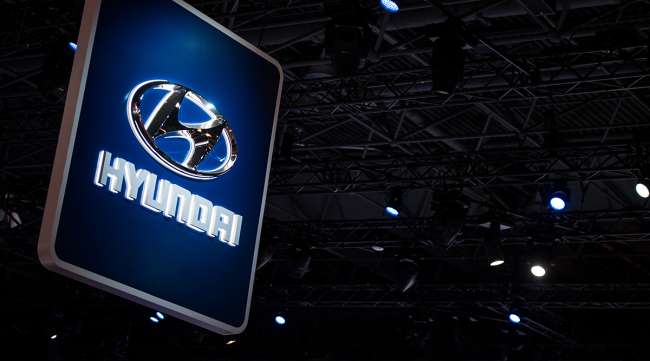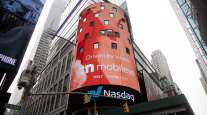In the Debate on Who Will Own Autonomous Cars, Hyundai Picks Uber

As Google’s Waymo, General Motors Co. and others race to bring driverless automobiles to showrooms, the argument over who will buy cars in the technology era is getting louder.
Hyundai Motor Co., a latecomer to electrification and autonomous driving, is betting against individuals owning robot cars and preparing for a future in which the biggest buyers will be ride-sharing giants such as Uber Technologies Inc., Lyft Inc. and GrabTaxi Holdings Pte. The South Korean automaker said last month it invested in Singapore-based Grab, Southeast Asia’s biggest cab-hailing service.
“The trend is now changing,” Woongjun Jang, director of Hyundai’s Advanced Driver Assistance System Development Group, told Stephen Engle in a Bloomberg Television interview on Feb. 8. “In the past, people liked to own their cars. In the near future, I think the owner of the self-driving market will be mobility-service providers.”
RELATED: With Waymo settlement, Uber CEO clears the way for company’s future
Jang is the latest to weigh in on a topic fiercely contested by some industry veterans including Carlos Ghosn. The chief of the Franco-Japanese Renault-Nissan-Mitsubishi Motors alliance said in November that the traditional model is here to stay and alternative forms of mobility would only make a marginal impact. While Uber Chief Product Officer Jeff Holden has termed individual car ownership as “very inefficient” and will go away, Subaru Corp.’s Tom Doll said most people will continue to own or lease their vehicle in much the same way they do today.
“For real people, swapping out a car, getting all their stuff out — the pens, papers and dog hair — it’s a pain,” Doll, president of Subaru of America, said at the Chicago auto show. “Most people still want to have a longer-term relationship with just one or two cars in the driveway. It’s easier and simpler that way.”
Computer on Wheels
Hyundai, the world’s fifth-biggest automaker, is among manufacturers bracing for days when a car will be what Ford Motor Co. CEO Jim Hackett calls “a rolling computer,” differentiated more by its processing power. Hyundai, which is working on vehicles and software systems for a planned robotaxi service with Aurora, is investing in startups and talking to Waymo, Uber as well Grab, Jang said.
Hyundai is seeking to provide a flexible, open platform in its cars, so buyers could customize applications to suit their needs, unlike some rivals that are developing vehicles for, say, delivery of pizzas or groceries, Jang said.
RELATED: Pizza Hut working with Toyota to test driverless pizza delivery
“Who is going to match the requirements of the mobility-service provider will be a key factor,” Jang said.
The Seoul-based company is scheduled to showcase its self-driving, fuel-cell NEXO sport utility vehicles during the Winter Olympics at Pyeongchang, South Korea. The car can drive more than 370 miles on a single five-minute charge, according to the company.
The success of the car on bumpy roads in the countryside surrounding the main stadium, with the mercury dipping 10 degrees below zero Celsius, will help Hyundai chart its future course as it seeks to close in on advanced rivals such as Nissan Motor Co. and GM.
With assistance by Jung Soo Maeng, and John Lippert




